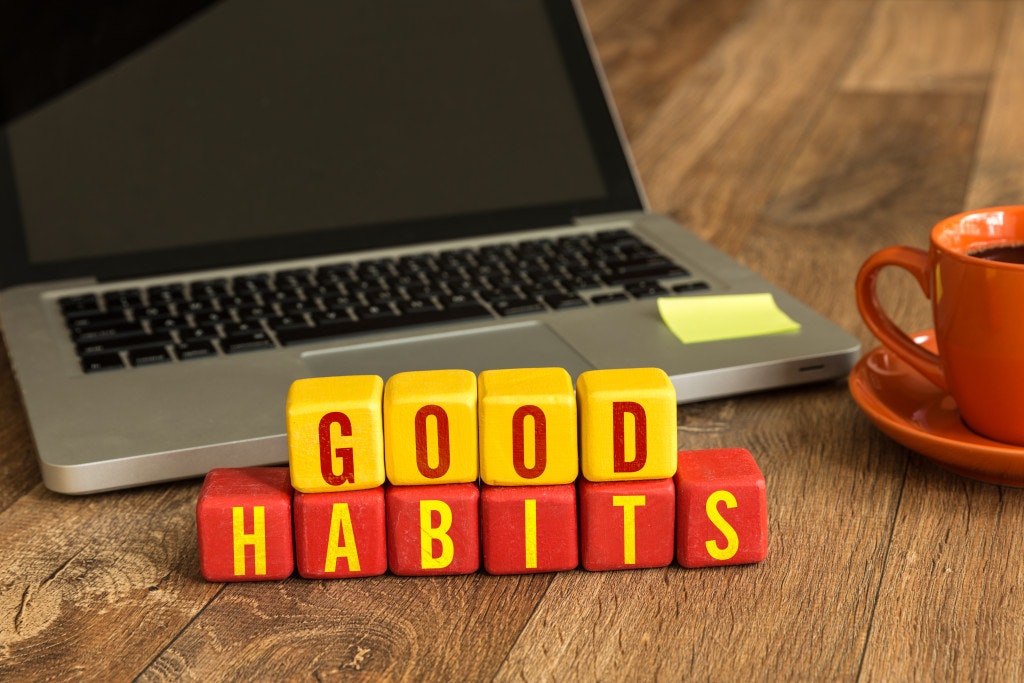Paula Rodriguez
To sustain a profitable career in forex trading, practice productive routines and avoid bad habits
Bad habits are the enemy of peak productivity. In a high risk profession like forex trading, conquering bad habits is one of the best ways to ensure efficiency and success. With every activity of trading, it is crucial to exercise good habits instead of bad practices. This will lead to profitable trading sessions and the development of overall performance.
How are bad habits formed?
Habits are formed through the repetition of an action triggered by a certain emotion or urge. According toPsychology Today, all habits are linked to an instinctive action. These constant behaviours eventually form into a habit and dictates your level of productivity.Whether good or bad, it is common to develop a habit without being fully aware of them. Habits begin with atrigger, then followed by anactionand ends with areward or loss. By reviewing these three stages, you can begin to study and execute ways to turn bad habits into effective routines.Find out what kind of habits you are forming as a trader. To check your personality traits for habit formation, try theHabit Personality Quizby The New York Times.
Where to start
In a forex trading career, good habits are determined by its long term payoffs. Is the habit of your trading timeframe giving you profit? Is your constant habit of watching live trades doing you any good? By defining habits that lead to profit, any forex trader can accomplish goals and sustain a livelihood from the business.
Step 1: Recognise all good and bad habits
Step 2: Define the outcome of these habits
Step 3: Determine ineffective and successful practices
Step 4: Correct bad habits
Step 5: Quantify results from changes
Bad personal habits to avoid while forex trading
Optimal productivity can be achieved with good habits and better mental well being. To reach your goals as a forex trader, you must acquire good instincts and eliminate those bad habits that can put your trades at risk.Everyone experiences different levels of effectiveness in a trading journey. To ensure peak productivity, here arerisky habits to avoid in any forex trading scenario:
Bad habit: Taking on too much self-criticism
The better habit: Replace negative self-criticism into positive actionSelf-criticism is a natural habit in a business that deals with the risks of money. With a changeable market, forex traders tend to criticise every move especially when the consequences are unsatisfactory. This trigger leads to a reaction that involves personal blame and self-doubt. Once a trader has the habit of excessive negative criticism, it will be difficult to carry out personal growth.Forex trading deals with challenges and requires a lot of hard work. Oftentimes, negative self-talk can lead to damaging effects for daily productivity. The best way to increase self-confidence is to replace criticism with positive analysis. Exercising affirmative thoughts will allow you to focus on your trading goals. Here are quick tips to decrease self-criticism and develop positive self-evaluation:
- Use motivation to do better instead of feeling defeated.
- Practice self-compassion especially after reviewing the reality of any trading losses
- Evaluate your execution with a business mindset only
- Enjoy and comprehend the learning process of forex trading
- Understand and set realistic expectations at this point of your trading career
Bad habit: Repeating mistakes after losses
The better habit: Learn from the loss and act diligently during the next sessionThe only way to break this bad habit is to stop repeating your mistakes. In the business of forex trading, repetition of any previous errors is critical especially when risks are high. Impatience or stretching losses are some of the mistakes that traders instinctively turn to. These patterns can determine the success of your strategies as well as the development of your trading performance. Here are steps you can take to avoid repeating your mistakes during a trading session:
- Keep track of your activity and thought process through a trading journal. Find outEverything You Need To Know About Getting a Trading Journal
- Investigate and ask yourself questions in regards to your logic, emotions and reactions during the trade
- Create a performance enhancement plan for yourself based on your findings
Recurrence of a similar trading scenario can trigger the bad habit. Instances like these can be frustrating if not addressed and corrected. To avoid going through the same loss, you must be more aware, take control then redirect the habit towards better trades.
Bad habit: Harboring emotional attachments to trades
The better habit: Take each trade as a business opportunity or lossWhen it comes to investing in forex trading, most traders might find it difficult to emotionally detach from executions. If you have done your research, forex trading involves more than just currency. A business like this has plenty to do with upsets and victories.A bad habit is formed when a trader lets emotions dictate a trade. With the nature of financial markets, emotional investment are high. These are a few realities of emotional trading:
- Emotional attachment to trades creates risky situations. Whether you have a good trading strategy or not, emotional trading can easily get in the way of a successful execution.
- Forex trading through gut feeling mirrors a kind of rush similar to gambling. A successful trader does not gamble. You must analyze and execute according to a calculated strategy.
- Trading without emotion is difficult. You will need to practice!
- Letting go of an unsuccessful trade is valuable for growth. Not doing so will affect improvement
- To get a hold of your emotions during a trade, remind yourself that there will always be a chance of losing and winning trades.
Bad habit: Straying from your trading plan
The better habit: Actively sticking to your trading planAll forex traders must have a properly outlined routine. In fact, some new traders make the common mistake of trading without a dependable method. Because of this, the bad habit of straying from your strategy can more likely result in possible losses and further inner conflict. Take a look at suggested ways to become a better trader through a trading plan:
- Do your homework. The exchange of information between traders is open for everyone to learn from.
- Examine your goals as a forex trader and set the best time frame or market condition to achieve your goals.
- Keep in mind that building a profitable strategy takes time. Sticking to the plan takes discipline.
- Make use of your trading plan to manage every trade and ensure proper mindset
- When faced with any unexpected movement, stick to your plan and trading style.
To succeed in a dynamic market, traders should prepare for changes and equip themselves with efficient strategies. Instead of straying from a calculated plan, stay confident in your system to reach your goals and prevent losses.
Bad habit: Having uncontrollable anxiety and pressure
The better habit: Keep track of your trading performanceThe main reason why most traders feel anxious is because of lack of belief of their trading plan especially for beginners. To increase efficiency, a forex trader should keep track of profits and performance. This constant inspection of trades will encourage improvement and lessen trading anxiety.Another common cause for anxiety is the experience of recent trading losses. Aside from enhancing your system and reviewing trading performance, give yourself time to unwind. With odd hours and the body strains of forex trading, stress can build up and affect efficiency.To overcome the pressure or anxiety from losing trades, here are easy tips to initiate the better habit of optimizing trading performance:
- Practice better stress management. Find creative ideashere.
- Keep an eye on your health. Check outForex Trader’s Health: What is Your Body Telling You?
- Optimize your performance by using apps.Michael Hyattsuggests these 7 apps.
- Do not worry too much. Take a look at thesteps to worry less.
 Bad habits can threaten a sustainable career in forex trading. Over time, these patterns can evolve into a mindset that results in less productivity and inefficiency. To prevent habits from affecting trades, acknowledge the negative habits and apply better practices. Make sure to track any positive changes and reevaluate habits that need more improvement.
Bad habits can threaten a sustainable career in forex trading. Over time, these patterns can evolve into a mindset that results in less productivity and inefficiency. To prevent habits from affecting trades, acknowledge the negative habits and apply better practices. Make sure to track any positive changes and reevaluate habits that need more improvement.

